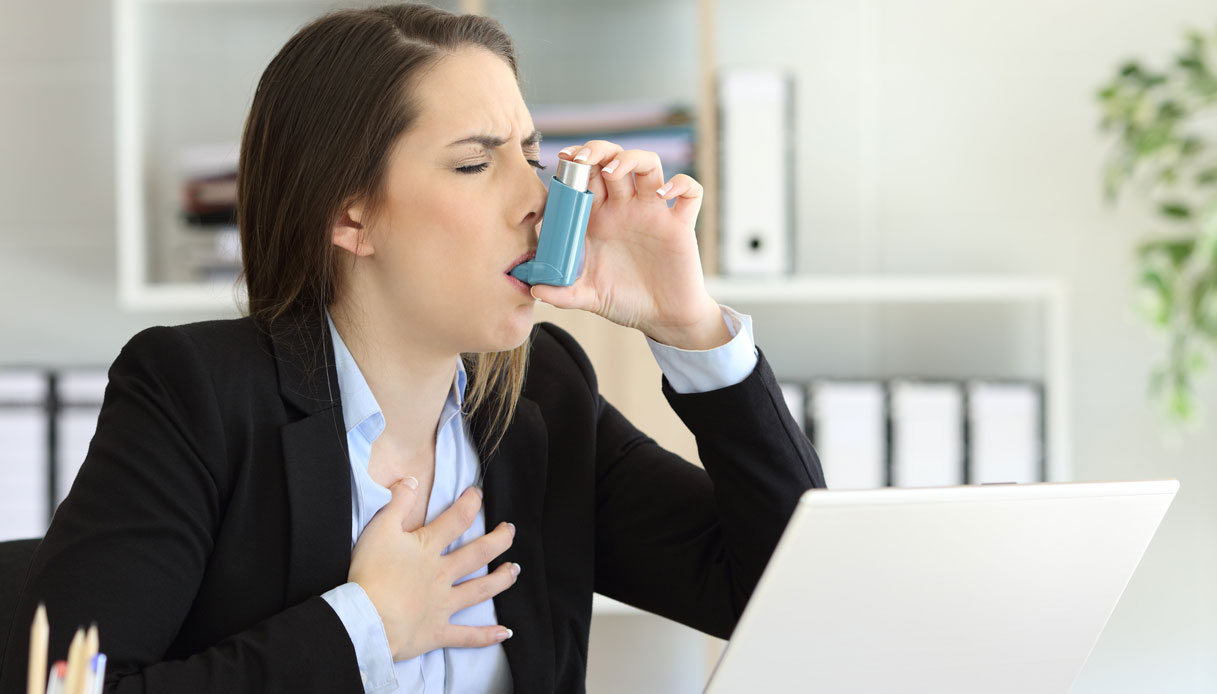Shortness of breath becomes an enemy that can lead sufferers severe asthma, therefore not controllable with the usual therapies, even in the emergency room. And it is obvious that for these cases specific drugs are needed, such as monoclonal antibodies.
Case by case, the specialist may point to these intelligent “bullets” that hit a key point along the path to the disease. According to statistics, about 200,000 people in Italy are facing this situation. But in this era of pandemic, there is a question that obviously rebounds: Should people with severe asthma be vaccinated or not to protect themselves from the Sars-CoV-2 virus?
The answer is positive, as a signal from the first Italian study conducted on these patients by experts from the Italian Society of Allergology, Asthma and Clinical Immunology (SIAAIC). The results of the survey, published on Vaccines, will be discussed during the SIAAIC Congress and show that the vaccine has an optimal safety profile in all patients with severe asthma: more than 80% had no side effects after the administration of the vaccine and in 95% of cases it was treated of small disturbances.
In no case was there an aggravation of asthma: also for this reason, experts recommend patients to undergo the third dose with confidence and without fear.
What the research says
The study was conducted on 253 patients with severe asthma followed by the Reference Centers for severe asthma in Verona and Padua and immunized against COVID-19 with the mRNA vaccine.
“Only patients with ongoing severe asthma relapse and treated with a high dose of oral steroids were excluded from vaccination; all the others were followed to record and evaluate any adverse events after vaccination – explains Gianenrico Senna, co-author of the study and president of SIAAIC – The data is very reassuring: after the first dose only 19% of patients complained of a side effect which in 81% of cases was very common and of little consequence, after the second dose only 17% had an adverse event and in 95% of cases it was it is treated for minor aches such as arm pain, fever, muscle aches or headache.
After the first dose there were some uncommon but not serious complaints, such as widespread pain or lymphadenopathy, however, there were no rare adverse events, such as severe allergic reactions or facial asymmetries, nor was pre-medication recommended or reported. with antihistamines or paracetamol “.
The detailed analysis of patients treated with a monoclonal antibody was equally reassuring: the risk profile was comparable to that of those who do not take biological drugs.
“The only precaution taken was to observe an interval of 48 hours between the administration of the biological drug and the dose of vaccine – specify Andrea Vianello, Professor of Respiratory System Diseases at the University of Padua and co-author of the study together with Gabriella Guarnieri, Respiratory Physiopathology Service, Hospital – University of Padua – In no case there was a worsening of asthma, which remained stable or even slightly improved; the quality of life of patients has also increased, probably thanks to the positive attitude towards vaccination which was rightly seen as a precious help by subjects more susceptible to the damage of COVID-19.
These data therefore encourage all patients with severe asthma to confidently and fearlessly undergo the eventual third dose of vaccine, an essential and safe health tool for all of them ”.
What is severe asthma?
The term asthma encompasses several clinical conditions. For most people who suffer from it, the disease occurs in a mild or moderate form, so it can be addressed with standard therapies.
With the term “Severe asthma” or “Severe asthma” (Severe Asthma) refers to a form of asthma that affects a rather heterogeneous group of patients, however, who share a poor quality of life and very frequent symptoms.
Today severe asthma is considered as a type of asthma that is not controlled, with the patient continuing to have frequent attacks – the so-called “exacerbations” – and often resorts to the emergency room, despite the therapy carried out by patients is the maximum required by the international guidelines with frequent or even constant use of oral, injected or intravenous cortisone.
.
